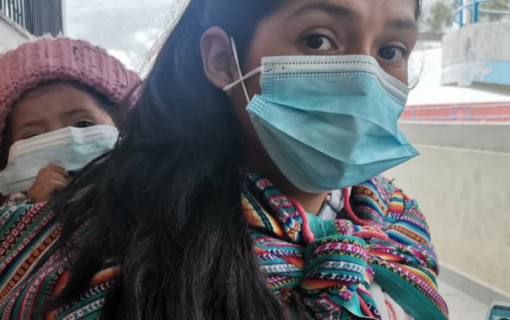Lesotho: A Pre-Election Assessment Report, August 1, 1991
EXECUTIVE SUMMARY
The Government of Lesotho plans to hold elections in 1992 for members of Parliament. These will be the first multi-party elections held in that country since 1970. In preparation for this return to democracy, a ministerial level Task Force Democratization was formed in February 1990. From October 1990 to June 1991 a National Constituent Assembly met in Maseru to draft a revision to the 1966 Constitution. In May 1991 the military government's 1986 order banning all political party activity was lifted. Old political parties are reorganizing themselves and new parties are being formed.
In July 1991 a team of consultants from the U.S. non-governmental organization the International Foundation for Electoral Systems visited Lesotho for ten days on a Pre-Election Assessment mission funded by the U.S. Agency for International Development. The primary goals of this mission were to assist the Government of Lesotho in its election preparations and to assess the budgetary demands of the election process.
The IFES team's ten-day visit to Lesotho resulted in this Pre-Election Assessment Report. Its analyses and recommendations seek to serve the needs of three audiences. First, it describes in detail the Government's current election policies and procedures, coupled with an analysis of their strengths and weaknesses, an enumeration of questions yet to be resolved, and recommendations for future action. The audience for this section of the report is imagined to be primarily officials in the Government of Lesotho concerned with election preparation, particularly the Working Group on Elections.
Secondly, the Report presents a tentative global budget for the election process, from its beginnings in voter registration, through constituency delimitation, to the final goal of 1992 elections. This budget was developed during the many hours that the IFES team worked with the Working Group in Election during its stay in Lesotho. The purpose of the budget, and the accompanying detailed notes, is to provide a planning tool for the Government of Lesotho, particularly the Election Office, and also to provide a starting point for the Government of Lesotho's discussions with the external donor community about ways in which friendly foreign governments might assist Lesotho in their election preparations. Thus, the intended audience for this section of the report is the diplomatic community in Lesotho as well as the Government.
The third audience for the report are those people who may in the coming months be assisting the Government of Lesotho in its election preparations, particularly as consultants coming from outside of the country. It is primarily for this audience that we have included background information on Lesotho's history and economy, and a summary of recent events that have brought Lesotho to its current point on the road to democracy.
The IFES team's recommendations are summarized in the final section of this report. Policy and procedural recommendations are quite detailed. In general, the team found, along with a sincere willingness to grapple with the nuts and bolts of election planning, an understandable lack of institutional memory given the paucity of experience with elections in that country, and a tendency toward waiting for external assistance. We have recommended, therefore, that the Government of Lesotho, particularly the Working Group on Elections and the Task Force on Democratization, must forge ahead with the process of voter registration in order to demonstrate to the people of Lesotho and to the diplomatic community the Government's commitment to elections and ability to act on that commitment. At the same time, we recommend that the diplomatic community be prepared to move quickly in providing assistance once sufficient movement has been shown. A significant test will be if the Government begins registration preparation, with briefings of District Secretaries, recruitment of a training consultant, and the equipping of the Elections Office.
The budget prepared for this report lists total expenditures of 11.1 million maloti (about $4 million) for the entire election process. This is a highly tentative budget, but it is hoped that that figure will help to give the Government of Lesotho and the diplomatic community a rough estimate of the financial commitment required to 'make the plans for elections a reality.
The IFES team concludes that a number of commodities and technical resources are essential for the smooth progress of election preparations. Technical assistance is recommended in at least four areas: election law, data processing, election systems organization, and civic education. Commodities such as ballots and indelible ink will have to come from outside of Lesotho. Some capital equipment will undoubtedly be necessary to purchase, including computer hardware, vehicles and communications equipment.
Even if sufficient resources, from internal and external sources, are provided for Lesotho's elections, there are many pitfalls on the road to democracy which will be avoided only with the greatest effort. Economic unrest, inter-party strife, and dissension within the military or within the current government all have the potential of leading to violence or to a derailing of the democratization process. Avoiding those pitfalls will require steady progress on the part of the Government toward keeping its election timetable and a willingness to remain in open dialogue with all sections of Lesotho society, particularly with the political parties. It will require a political maturity on the part of the people of Lesotho which can only be attained with a broad and effective civic education program. Finally, it will require swift, flexible and meaningful responses from the diplomatic community to the Government's requests for assistance.
Read the Full Report.









